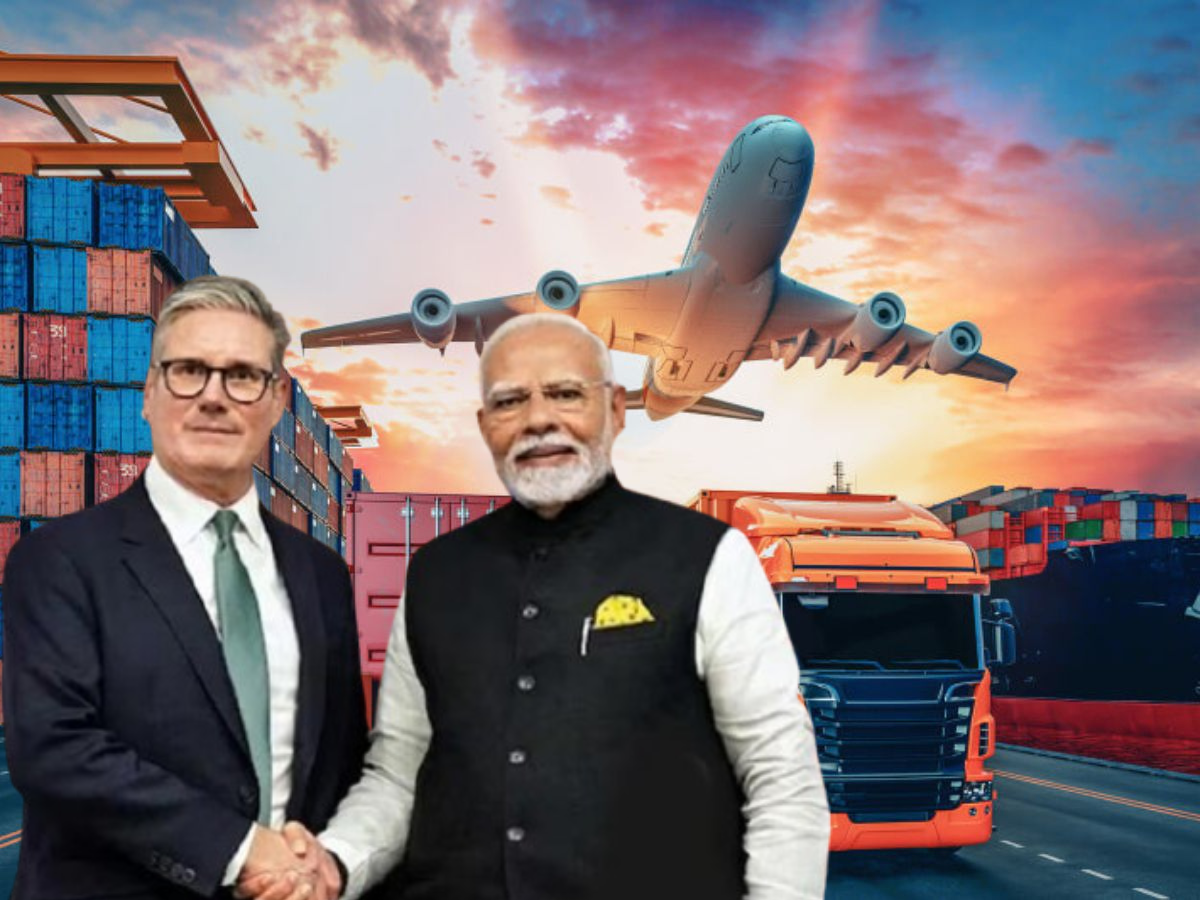The India-UK Free Trade Agreement (FTA) is set to become a landmark to both the economies. PM Narendra Modi’s visit to London will embrace India’s first major bilateral trade deal with any of the developed nation.
The objective of this deal between India and UK is to double bilateral trade between two countries to $120 billion by 2030.
India-UK Deal will Eliminate Tariffs Across Key Sectors
The agreement eliminates tariffs on almost everything India exports to the UK. Major sectors that will get benefits are textiles, leather, footwear, gems and jewellery. However, tariffs on UK exports will get reduced in phases.
Major products counts are whisky, cars, cosmetics, and chocolates. Scotch whisky duties will be reduced from 150% to 75% immediately and car tariffs fall from 100% to 10%. There will be a momentum in the Electric vehicles and hybrids from India because of its market access in UK.
Economic and Employment Impact of India-UK Trade Deal
In the Financial Year 2024-25, exports from India to the UK grew by 12.6% to $14.5 billion in FY 2024 25, although imports improved 2.3% to $8.6 billion. This deal will probably add billions to the GDP of UK by 2040.
However, MSMEs in India will get benefit through cost savings up to 4–16%. This will further improve global competitiveness for India. There is a substantial expansion expected in Engineering, chemical, food processing, and marine product sectors. Textiles exports may also nurture due to India-UK trade agreement.
Services, Mobility, Investment and Strategic Links
Services sector including visa access for yoga instructors, chefs, musicians, contractual service providers, and business travelers will gain benefits out of India-UK trade deal.
For up to 3 years, a double contribution social security pact will exempt Indian professionals and employers from UK national insurance. India will open non sensitive federal procurement tenders above Rs 2 billion to UK suppliers.
Risks, Challenges and Next Steps
Remaining agenda items include carbon border adjustment costs for steel and aluminium and the Bilateral Investment Treaty (BIT). Within a year’s time the agreement must be approved by the UK Parliament and India’s federal cabinet before coming to action.
Global Outlook
Free Trade agreement between India and UK will align global trade trends post Brexit. It will offer a blueprint that other global economies.
Supported by strategic cooperation in technology, security, and supply chain integration, this pact is positioned to maintain its relevance and will have a long term impact, globally.
Ankur Mishra is a journalist who covers an extensive range of news, from business, stock markets, IPOs to geopolitics, world affairs, international crises, and general news. With over a decade of experience in the business domain, Ankur has been associated with some of the reputed media brands. Through a sharp eye on global marketplaces along with deep insights and analysis of business strategies, Ankur brings simplicity to the complex economic matrix to decode market trends and empower people.
He is committed to entrenched data, facts, research, solutions, and a dedication to value-based journalism. He has covered trade tariff wars, international alliances, corporate policies, government initiatives, regulatory developments, along with micro- and macroeconomic shifts impacting global fiscal dynamics.







